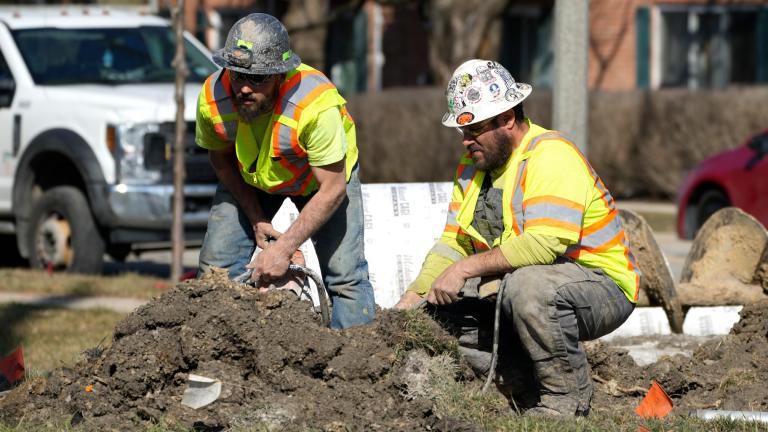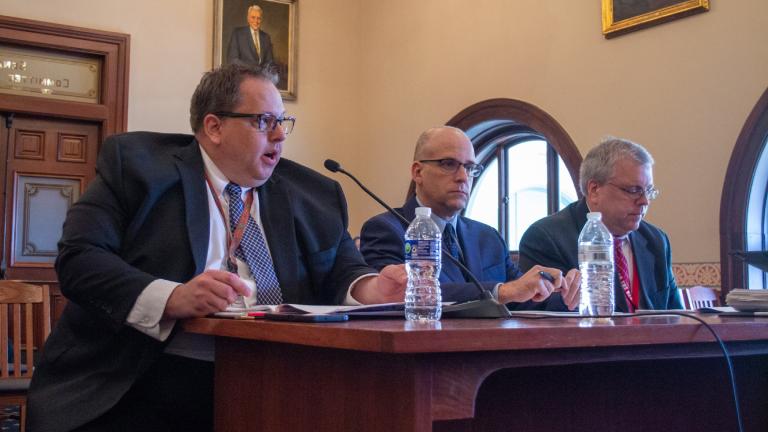It was clear as soon as the coronavirus was classified as a pandemic that it was going to take a heavy toll on the finances of many individuals and businesses – and therefore on their governments’ finances, too.
With COVID-19 cases still rising in the U.S., it’s still difficult to measure the true extent of that impact, but new figures are offering a glimpse of what it looks like for Illinois, which ended its last fiscal year at the end of June.
A report by Illinois’ nonpartisan Commission on Government Forecasting and Accountability shows that Illinois’ revenue is down by $1.135 billion, or about 2.9%, over the previous fiscal year.
“Any time you lose money in the general funds from a previous fiscal year, that means that things are very bad. The last time that that’s happened were the two prior recessions,” says COGFA’s revenue manager Jim Muschinske.
Muschinske keys in on the three main sources that make up the bulk of Illinois’ general funds: Personal income tax (receipts fell by 4.2% from fiscal year 19 to fiscal 20), the corporate income tax (which fell by 14.2%) and the sales tax (which dipped by 2.3%).
“The ‘Big Three’ revenue sources felt the brunt of COVID-19,” Muschinske wrote in his report for June. “In total, the combined net drop of the ‘Big Three’ was $1.227 billion.”
The personal income tax receipts weren’t as low as they would have been were it not for the $600 weekly unemployment bonus from the feds.
“Unless there’s legislative action at the federal level to continue that, that will abruptly end at the end of July,” Muschinske said. “So some of that softening will dissipate then as we head into August, September, October, and so that’s of course a concern.”
While they don’t make as big a dent in the overall fiscal picture, other revenue sources add up when it comes to the state budget – and they may be indicators of people’s behavior during the stay-at-home order.
Even though it’s possible to play the Illinois Lottery online, receipts for the Lottery fell by 13.8%.
“Early on, with the stay-at-home orders, maybe some people went out to fill up their tanks but with the lack of driving – I think I went almost six weeks without filling up any of my vehicles – so unless I specifically went out to buy a Lottery ticket, there was no just stopping by somewhere and picking up a scratch-off,” Muschinske said.
With casinos closed from mid-March through June, riverboat revenues declined year-over-year by 27.5%.
But swallow this: The revenue brought in through the tax on alcohol increased.
According to the COGFA report, “liquor gallonage taxes” rose by 2.9% last year.
“Was that because people were shut in and drinking more? I don’t know,” Muschinske said.
Follow Amanda Vinicky on Twitter: @AmandaVinicky








